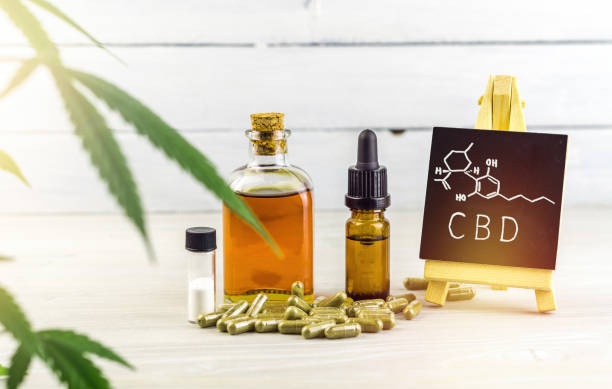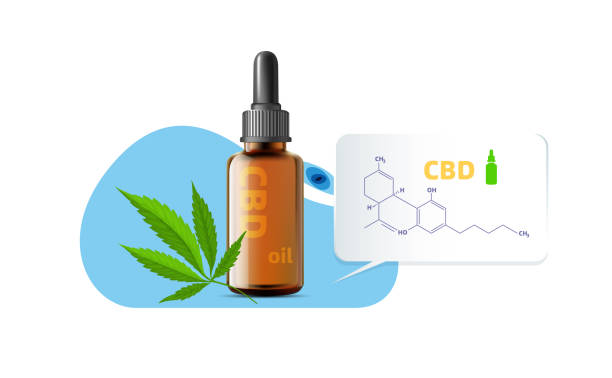Depression is one of the most frequent types of mental health issues that people report having. When one lives with any of these conditions, it can be a challenge to keep a healthy mental balance while still coping with the pressures that come with day-to-day living. The use of CBD oil as a helpful natural therapy for depression is growing in popularity.
Beyond anecdotal evidence, scientists are now looking at the potential health advantages of CBD Oil use. The efficacy of this natural medicinal assistance is the subject of an ever-increasing number of scientific research, which is now being carried out all over the world. Research conducted in 2020 with the purpose of gaining an understanding of the effects of CBD in the treatment of people who had been diagnosed with depression revealed that those who took CBD oil saw a discernible reduction in the severity of their symptoms.

Anxiety and depression frequently co-occur in people’s lives. It is quite possible that a person who has been diagnosed with depression will also display some of the symptoms of anxiety, and vice versa. In other words, they coexist simultaneously. Therefore, alleviating the signs and symptoms of anxiety should also have a salutary effect on a person’s level of depression. There have been a number of studies that have shown that CBD oil benefits in lowering the physiological symptoms of anxiety, despite the fact that research is still in its very early stages and has a long way to go.
How Should You Get Started with Using CBD Oil as a Depression Treatment?
CBD oil comes in a variety of different forms, and using it as a non-pharmaceutical therapy for depression is one option. Depending on the potency and dose of CBD oil that you require, you may select from a range of different options, including oils and capsules. Different effects are produced by the various methods of intake. If you decide to put it in your diet, for example, the impact will be less intense but is more likely to remain for a longer period of time.
Products containing CBD may be purchased via general practitioners (GPs) and licensed clinics. Before incorporating CBD oil use into your treatment strategy, it is strongly suggested that you discuss the matter with a qualified medical professional at Chronic Therapy. A trained medical professional will be able to determine whether or not CBD will be beneficial in your situation and recommend a dosage that will be effective for you.
CBD is digested in a manner that is unique to each individual and is dependent on the make-up of their bodies. There have been reports of CBD causing a few modest adverse effects, despite the fact that it has a good safety profile and is typically well tolerated.
How exactly does CBD Oil work to alleviate the symptoms of depression?
CBD is a substance that is derived from the cannabis plant and occurs naturally in the plant. There is a widespread misunderstanding that consuming CBD oil will also result in the accompanying “high” that cannabis is notorious for. Because it does not contain any THC, the component of cannabis responsible for its psychoactive effects, cannabidiol, or CBD, does not have any psychoactive effects.
CBD has the ability to interact and bind with a variety of receptors found throughout our bodies, which ultimately results in the beneficial changes that we feel.
Serotonin, sometimes known as the “happy hormone,” has a significant impact on the way your mental health is now functioning. In point of fact, serotonin supplements are frequently incorporated into the therapy plan for patients suffering from depression. The ability of CBD to activate serotonin receptors can contribute to an improvement in one’s state of mind.
Cortisol is another hormone that plays a significant role in determining the state of your mental health. This hormone, known as the “stress” hormone, encourages your body to remain vigilant. It is a significant stress trigger, and CBD oil use is an effective treatment for anxiety. It is possible that excessive production will have a detrimental influence on your mental health. It has been shown that CBD can inhibit the synthesis of the stress hormone cortisol, which in turn lessens the negative effects of cortisol. You can read more about Tips on how to know when medical cannabis is appropriate by visiting http://eindustrynews.com/tips-on-how-to-know-when-medical-cannabis-is-appropriate/

There is a significant correlation between living with chronic pain and experiencing depression. It’s not very typical for us to make the connection between changes in our mental health and the onset of very common problems, like sciatica or lower back pain. On the other hand, having persistent discomfort can have a detrimental effect on one’s mental health. CBD has been utilized to ease some of this discomfort, which has, as a result, improved both the individual’s overall mental health and their ability to get quality sleep.
Conclusion: It’s Possible That CBD Oil Will Help You Feel Less Depressed.
Complex mental health illnesses, such as sadness and anxiety, are caused by a lot of different causes working together. Therapy is essential to comprehend how to deal with it because there is rarely a single medication that can treat all of its components. One of the most widespread misunderstandings regarding mental health issues is the notion that they are caused entirely by the mind and have no underlying physiological foundation. When in reality, hormone imbalances, the status of one’s physical health, and experiences with chronic pain are among the many elements that can have an effect on one’s mental health. The role that CBD is positioned to play as research continues is to treat several of these physiological symptoms in the hope that it will put you in a better position to build a balance in your mental well-being. This hope is based on the expectation that CBD will be able to do this. Click here to read about Everything you need to know about CBD oil.
.

To know more about where to buy CBD oil in Australia and other CBD oil benefits, you should book a consultation session with a professional from Chronic Therapy today.
